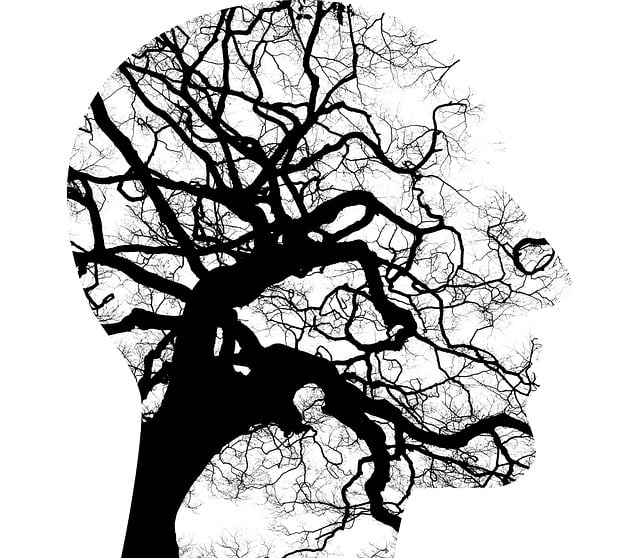Misdiagnosis in mental health care is a significant challenge that delays treatment, hinders recovery, and perpetuates stigma. It often ignores individual experiences and needs, like differentiating trauma-induced anxiety from general anxiety. Mental Illness Stigma Reduction Efforts are crucial for fostering understanding and empathy, enabling more precise diagnoses. Recent advancements include integrating Parker Relationship Issues Therapy (PRIT) to address relationship patterns contributing to mental distress. Technology also plays a role through digital platforms and apps for awareness, prevention, and self-care. By combining PRIT with advanced diagnostic tools, mental illness diagnosis accuracy improves, leading to personalized treatment plans and better patient outcomes.
Mental illness diagnosis accuracy is a critical aspect of patient care, yet challenges like misdiagnosis and its adverse effects persist. This article explores efforts to improve diagnostic accuracy through innovative techniques and integrated therapeutic models. We delve into the complexities of understanding misdiagnosis and its impact on patients’ lives, while highlighting advancements such as the Parker Relationship Issues Therapy Model, which combines therapy with diagnostic tools for more precise evaluations.
- Understanding the Challenges: Misdiagnosis and Its Impact
- Innovative Approaches: Enhancing Diagnosis Techniques
- Integrating Therapy with Diagnostic Tools: The Parker Relationship Issues Therapy Model
Understanding the Challenges: Misdiagnosis and Its Impact

Misdiagnosis is a significant challenge in mental health care, often exacerbating existing symptoms and hindering recovery. When individuals with varying psychological experiences are labeled with the same diagnosis, it overlooks their unique struggles and needs. This can lead to ineffective treatment plans, causing further frustration and deterioration of mental well-being. For instance, someone experiencing anxiety due to trauma might be misdiagnosed as simply anxious, missing the opportunity for tailored Parker Relationship Issues Therapy focused on resolving underlying emotional connections.
The impact of misdiagnosis extends beyond delayed or inadequate treatment. It can contribute to the perpetuation of mental illness stigma, especially when incorrect labels are applied to individuals struggling with self-esteem and confidence. Mental Illness Stigma Reduction Efforts play a vital role in combating this issue by fostering understanding and empathy towards diverse mental health experiences. By recognizing the nuances of each person’s journey, healthcare professionals can offer more precise diagnoses, facilitating Self-Esteem Improvement and Confidence Boosting through targeted interventions.
Innovative Approaches: Enhancing Diagnosis Techniques

In recent years, mental health professionals have been actively exploring innovative approaches to enhance the accuracy and reliability of diagnosis techniques for various mental illnesses. One such notable method is incorporating Parker Relationship Issues Therapy (PRIT) into clinical practice. This therapy type focuses on identifying and addressing relationship patterns that contribute to mental distress, offering a nuanced perspective on the patient’s psychological well-being. By delving deeper into interpersonal dynamics, PRIT can aid in uncovering underlying issues that may be overlooked during conventional assessments.
Furthermore, the integration of technology has played a pivotal role in improving diagnosis accuracy. Digital platforms and mobile applications are now being used to develop public awareness campaigns on mental health. These campaigns aim to educate people about recognizing common symptoms, fostering an environment where individuals feel more comfortable seeking help early on. Additionally, healthcare providers are encouraged to adopt burnout prevention strategies to maintain their well-being, ensuring they can provide optimal care to their patients. Self-care practices are also being promoted as a crucial aspect of mental health management, empowering individuals to take an active role in their recovery process.
Integrating Therapy with Diagnostic Tools: The Parker Relationship Issues Therapy Model

Integrating therapeutic models with diagnostic tools has emerged as a promising strategy to enhance mental illness diagnosis accuracy. One notable example is the Parker Relationship Issues Therapy (PRIT) Model, which focuses on improving assessment techniques for relationship-based disorders like depression and anxiety. PRIT integrates evidence-based therapy practices with advanced diagnostic instruments, ensuring a comprehensive understanding of patients’ psychological states. This approach not only improves diagnostic validity but also guides personalized treatment plans, enhancing patient outcomes.
By combining the PRIT Model with risk management planning for mental health professionals, healthcare providers can further optimize diagnosis accuracy and implement effective prevention strategies. Mental health policy analysis and advocacy play a crucial role in promoting such integrated approaches, ensuring that evidence-based practices like PRIT are widely adopted and supported, ultimately contributing to improved mental health services.
Mental illness diagnosis accuracy is a multifaceted challenge that demands innovative solutions. By understanding the complexities of misdiagnosis and its impact, we can effectively leverage enhanced diagnosis techniques and integrate them with therapeutic models like the Parker Relationship Issues Therapy. This approach promises improved outcomes by addressing not just symptoms but also the underlying dynamics that contribute to mental health conditions. As we continue to refine these strategies, a more precise and compassionate mental health care system becomes within reach, offering hope and healing to those who need it most.













